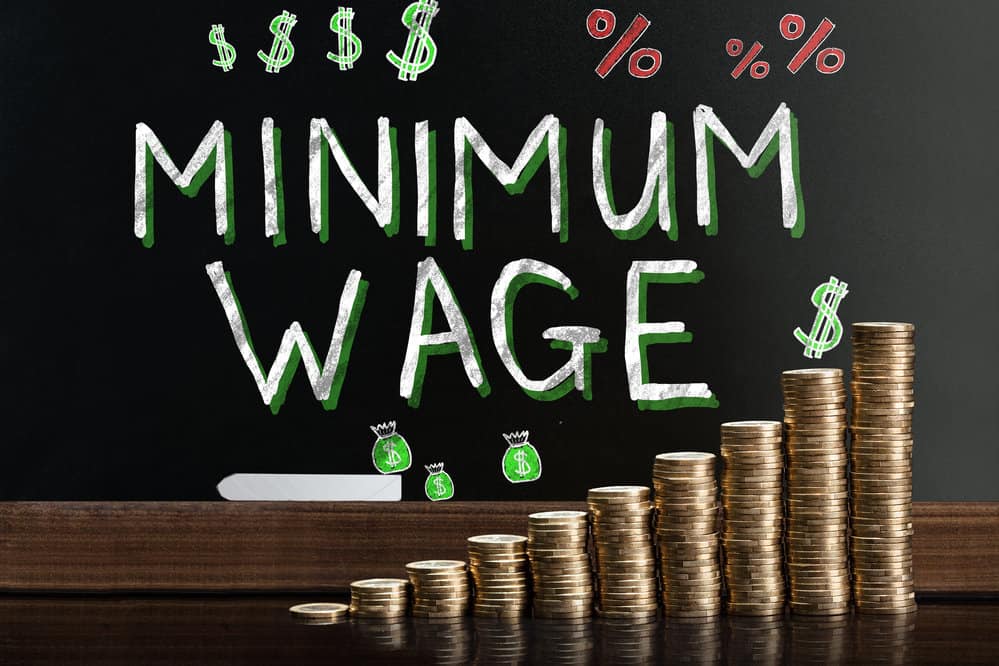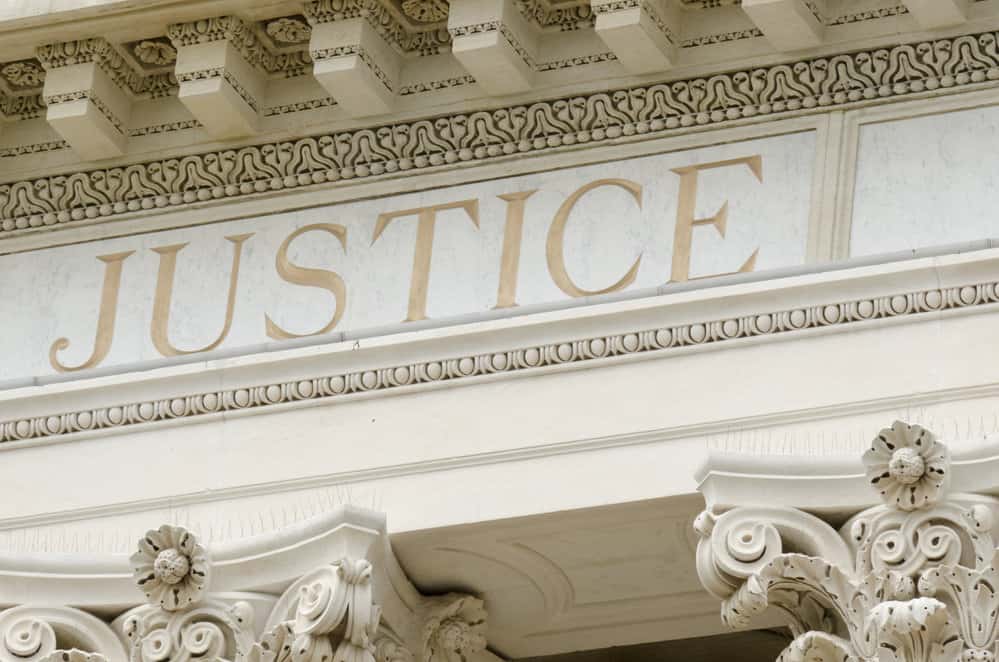New Jersey’s minimum wage has been discussed in recent years, as the state has implemented plans to increase the minimum wage for most employees steadily. This legislation aims to create a more equitable economy and support the financial well-being of the workforce. The current increase, effective January 1, 2023, has raised the minimum wage to $14.13 per hour, and the plan is set to reach $15 per hour by 2024.
The increase in the minimum wage results from legislation signed by Governor Murphy in February 2019, which outlines a gradual approach to raising wages over time. This legislation is designed to allow businesses some time to adapt and prepare for the changes. The ongoing increases will impact employees and employers, as businesses must comply with the mandated changes and as the workforce navigates the new wage structure.
Key Takeaways
- New Jersey’s minimum wage increased to $14.13 per hour on January 1, 2023
- The state’s legislation aims to raise the minimum wage to $15 per hour by 2024
- Both employees and employers must adjust to the changing wage landscape.
New Jersey Minimum Wage Law
Minimum Hourly Wage
Effective January 1, 2023, the minimum wage in New Jersey increased to $14.13 per hour for most workers, including both part-time and full-time employees. This change is an outcome of legislation signed by Governor Murphy in February 2019, aimed at gradually raising the minimum wage to $15 per hour by 2024 for most employees in the state.
The New Jersey State Wage and Hour Law establishes a minimum wage rate and overtime rate for all employees in New Jersey that fall under the purview of the Act. Alongside this, the Law mandates the payment of overtime – time and one half per hour – for any worker exceeding the standard 40 hour workweek.
Annual Adjustments Based on CPI
New Jersey’s state constitution requires adjustments based on the Consumer Price Index (CPI) to ensure that the minimum wage keeps pace with the cost of living. The Department of Labor and Workforce Development, overseen by Labor Commissioner Robert Asaro-Angelo, is responsible for implementing and monitoring these annual adjustments in line with inflation rates.
The minimum wage law in New Jersey is designed to protect workers by providing a stable and consistent income relative to the cost of living. Through annual adjustments based on the CPI, the state ensures that the minimum wage remains adequate for employees over time.
Current and Future Minimum Wage Rates
General Rates
Starting January 1, 2023, New Jersey’s statewide minimum wage has increased by $1.13 to $14.13 per hour for most employees. This increase is part of the legislation signed by Governor Murphy in February 2019, which aims to gradually raise the minimum wage to $15 per hour by 2024. Changes partly influence annual increases in the minimum wage in the consumer price index.
Small Employers and Seasonal Workers
New Jersey’s minimum wage had different rates for small employers (fewer than six employees) and seasonal workers in the past. For example, on January 1, 2020, the minimum wage for these employees was $10.30 per hour. However, it’s essential to check for recent updates about the current rates applicable to small employers and seasonal workers.
Long-Term Care Facility Direct Care Staff
Long-term care facility direct care staff in New Jersey have also seen wage adjustments. As of November 1, 2020, these staff members’ wages were set at $11, increasing to $14 as of the same date. It’s crucial to stay informed about any changes in the wage rates in this sector.
Tipped Workers
In New Jersey, the cash wage for tipped workers has been set at $3.13 per hour, provided that the employee’s tips and cash wage equal at least the current state minimum wage. Employers are responsible for ensuring their employees receive sustainable wages, particularly during challenging times such as a pandemic, which can disproportionally impact low-wage workers. It’s crucial to remember any updates regarding tipped workers’ minimum wage in New Jersey.
Legislation and Regulations
Governor Murphy’s Involvement
In February 2019, Governor Murphy signed legislation that raises the minimum wage in New Jersey, aiming to increase it to $15 per hour by 2024 for most employees. As a result of this legislation, the statewide minimum wage increased by $1.13, reaching $14.13 per hour for most employees starting from January 1, 2023.
New Jersey Department of Labor and Workforce Development Rules
The New Jersey Division of Wage and Hour Compliance, under the Department of Labor and Workforce Development (NJDOL), enforces state labor laws related to minimum wage, earned sick leave, methods of wage payment, child labor, and workplace labor standards. The NJDOL follows the highest federal minimum wage rate, the minimum wage rate set by New Jersey statute, or a minimum wage rate adjusted to account for increases in the Consumer Price Index (CPI) as the “effective minimum wage rate” for any given year.
The gradual increase in the minimum wage aims to safeguard workers’ health, efficiency, and general well-being while protecting them and their employers from the effects of serious and unfair competition resulting from wage levels detrimental to their health, efficiency, and well-being. The NJDOL ensures the implementation and adherence to these regulations for the benefit of employees and businesses across New Jersey.
Impact on Employees and Employers
Benefits for Workers
The increase in New Jersey’s minimum wage to $14.13 per hour, effective January 1, 2023, brings several benefits for workers. As their paychecks increase, employees can better support themselves and their families. With a higher wage, workers may also experience a reduced need for overtime, allowing for a better work-life balance.
Concerning the federal minimum wage, which is currently $7.25 per hour, New Jersey’s minimum wage greatly exceeds this amount, providing more financial security for employees. This wage increase can also positively impact the local economy as workers have more money to spend, potentially leading to increased demand for goods and services.
Challenges for Small Businesses
While the minimum wage increase in New Jersey offers numerous benefits for workers, it may create challenges for small businesses. Small businesses often operate with limited budgets and may struggle to accommodate the increased labor costs associated with paying employees a higher wage. As a result, small businesses may need to make difficult decisions, such as:
- Reducing hours of work for employees to minimize labor costs
- Adjusting hiring practices to hire fewer employees potentially
- Raising prices on goods and services to offset the higher wage expenses
To reach $15 an hour by 2024 for most employees, small businesses must continue to adapt to these ongoing wage increases. Changes like these may impact the overall health of the small business environment in the state.
To accommodate for the increased minimum wage, businesses may need to consider the factors of inflation and the Consumer Price Index (CPI). Both inflation and CPI may impact the cost of goods and services, which could ultimately influence a business’s financial decisions and pricing strategies.
Resources and Assistance
New Jersey has implemented several resources and assistance programs for employers and employees to navigate the changes in the minimum wage. The state’s Department of Labor and Workforce Development plays a significant role in providing these resources and ensuring a smooth transition for all parties.
Training and Guidance for Employers
The New Jersey Department of Labor and Workforce Development offers various services to help employers understand and comply with the minimum wage increases. Employers can access online tools through the department’s website, which allows them to view account summaries, check contribution rates, and more.
The department also provides resources and training on good job practices and implementing fair wages. By keeping employers properly informed, they aim to ensure business owners can effectively navigate the transition to the $14.13 per hour minimum wage in January 2023 and the eventual goal of $15 per hour by 2024, as supported by Governor Phil Murphy.
Legal Support for Employees
New Jersey’s legal resources offer guidance and support for employees who believe their rights are not being upheld regarding minimum wage rates. The state prioritizes fair compensation for all workers, and employees can turn to the Department of Labor and Workforce Development for assistance in understanding their rights and accessing legal services.
Employees can report suspected violations anonymously on the department’s website when issues arise. This helps ensure that employees are aware of and empowered to use the available resources to protect their rights and secure the appropriate compensation under New Jersey’s new minimum wage laws.
Frequently Asked Questions
What is the minimum wage for minors in NJ?
The minimum wage in New Jersey is $14.13 per hour for most workers, effective January 1, 20231. Minors are generally subject to the same minimum wage rate as adult workers, but there may be exceptions for certain industries or occupations2.
Are there any exemptions to the NJ minimum wage?
Yes, there are exemptions to the NJ minimum wage. Some examples include certain seasonal employees, agricultural workers, and employees working in non-profit organizations. Each exemption has specific rules and requirements, so verifying the applicable regulations for each case is essential.
How does NJ minimum wage compare to other states?
New Jersey’s minimum wage is higher than the federal minimum wage of $7.25 per hour and is among the highest minimum wages in the United States. However, it’s worth noting that minimum wage rates may vary across different states, cities, and localities, depending on living costs and local legislation.
What is the minimum wage for tipped employees in NJ?
Tipped employees in New Jersey are subject to the same minimum wage as other workers; however, employers may use a tip credit against the minimum wage obligations. This means that some of the employees’ tips can be counted towards satisfying the required minimum wage rate1. The specific rules and allowable tip credits may vary depending on the industry, so it’s vital to consult the relevant regulations for clarification.
What will the NJ minimum wage be in 2025?
New Jersey’s minimum wage will reach $15 per hour by 2024 for most employees1. The legislation responsible for this increase does not provide specific rates beyond 2024, so the exact minimum wage for 2025 is not predetermined. However, any future adjustments will likely depend on inflation, cost of living, and economic conditions.
How does the NJ minimum wage apply to businesses with fewer than six employees?
The current New Jersey minimum wage applies to businesses, regardless of their size or the number of employees. Small businesses, including those with fewer than six employees, are subject to the same minimum wage requirements as larger businesses. Business owners and employers must stay informed about any updates or changes to the minimum wage and other related labor laws.



